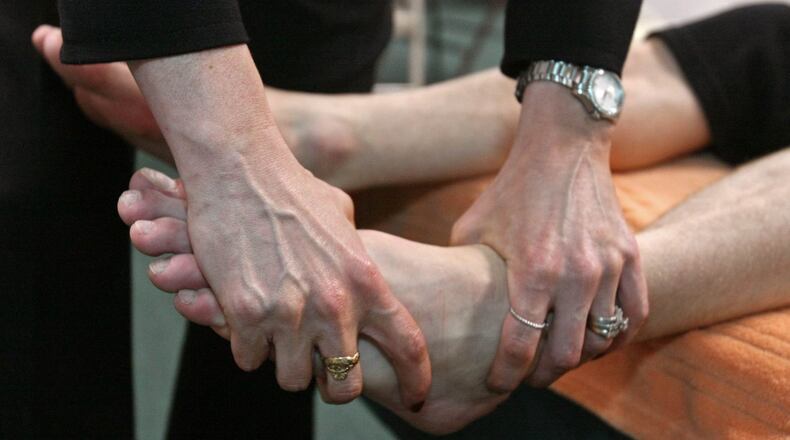Previously, Ohio Medicaid covered chiropractic adjustments but not the first visit where an evaluation takes place. The Ohio State Chiropractic Association said this was a roadblock that prevented many from receiving any treatment.
The legislation was introduced by state Rep. Scott Lipps, R-Franklin, who represents much of Warren County.
“House Bill 136 will improve access to chiropractic treatment options for Medicaid patients,” Lipps said. “This expansion is vital as chiropractic treatment is a nonaddictive and cost-effective option for many patients who might otherwise turn to opioids. This bill simply offers an alternative solution to pain management, thereby moving Ohio closer to alleviating the opioid crisis.”
About one in four Ohioans is enrolled in Medicaid.
Proponents of the bill point to the disproportionately high rate at which Medicaid patients are prescribed opioids for pain relief and their higher rate of overdoses. Ohio Medicaid beneficiaries were prescribed opioids for over half of all lower back pain episodes in 2015, according to proponent testimony from the Northeast Ohio Academy of Chiropractic.
The bill passed the Ohio Senate unanimously and the Ohio House in a 91-3 vote. Jena Powell, R-Arcanum, was among the legislators who voted no. Powell did not return a request for comment in time for publication.
This expansion of covered services could result in about $11.1 million in spending per year, according to the Ohio Legislative Service Commission. However, there could be some cost shifting if a patient sees a chiropractor instead of another health care provider. Evaluation and management services performed by other types of health care professionals are already covered by Medicaid.
Brandy Spaulding, executive director of the Ohio State Chiropractic Association, testified in support of the bill. She said this new law will ensure patients’ ability to access the 15 chiropractic visits already covered by Ohio Medicaid.
“Conservative treatment like chiropractic offers two major benefits: It saves lives by reducing opioid use and abuse and it saves money by offsetting more expensive and invasive treatments,” Spaulding said.
No testimony was submitted opposing HB 136.
About the Author

